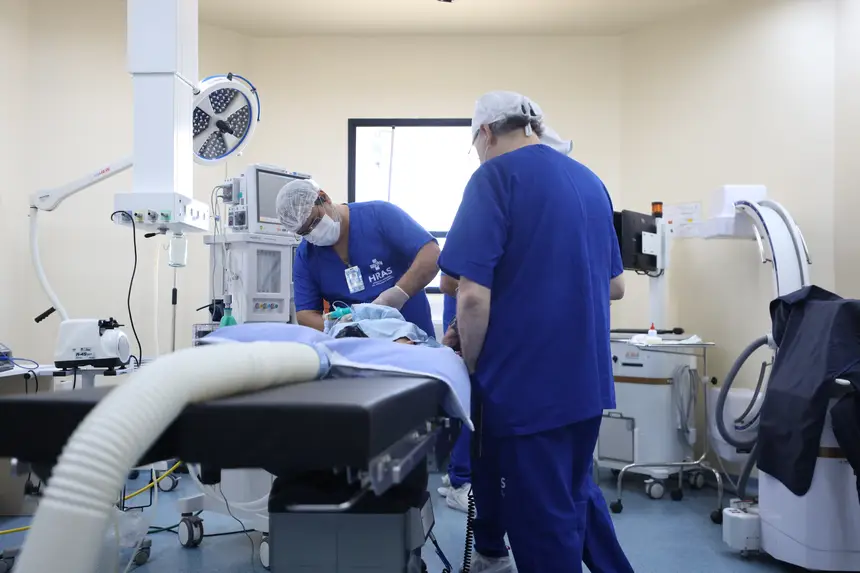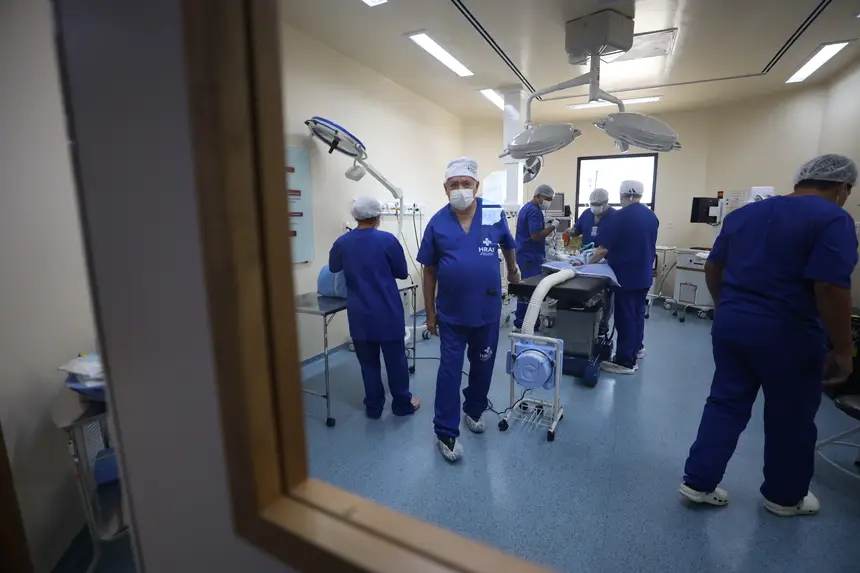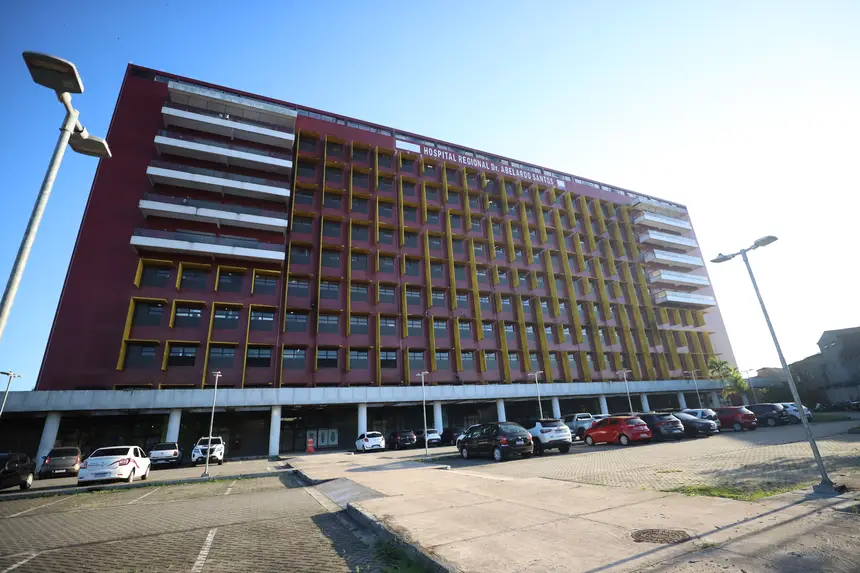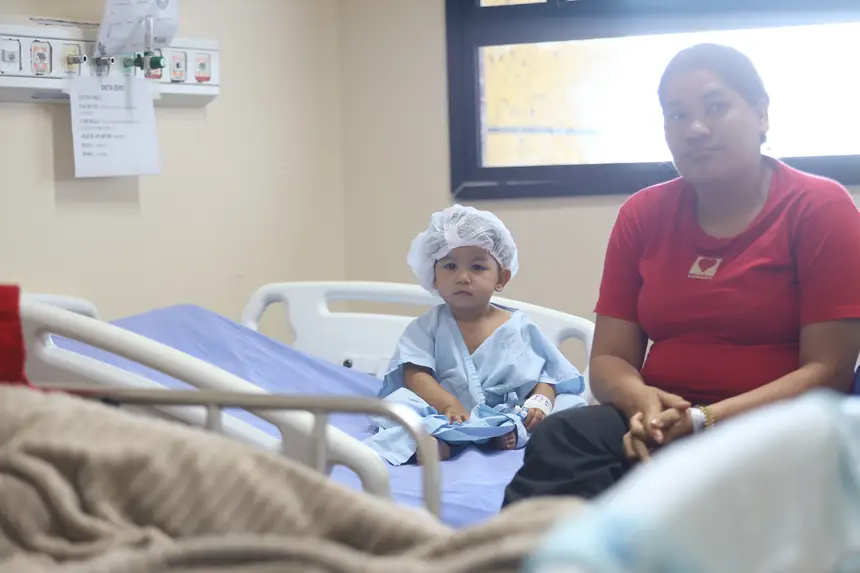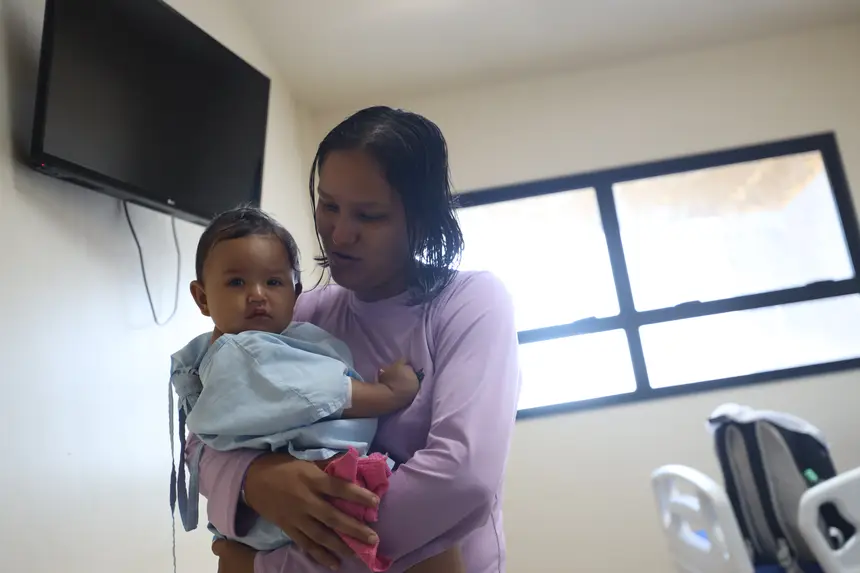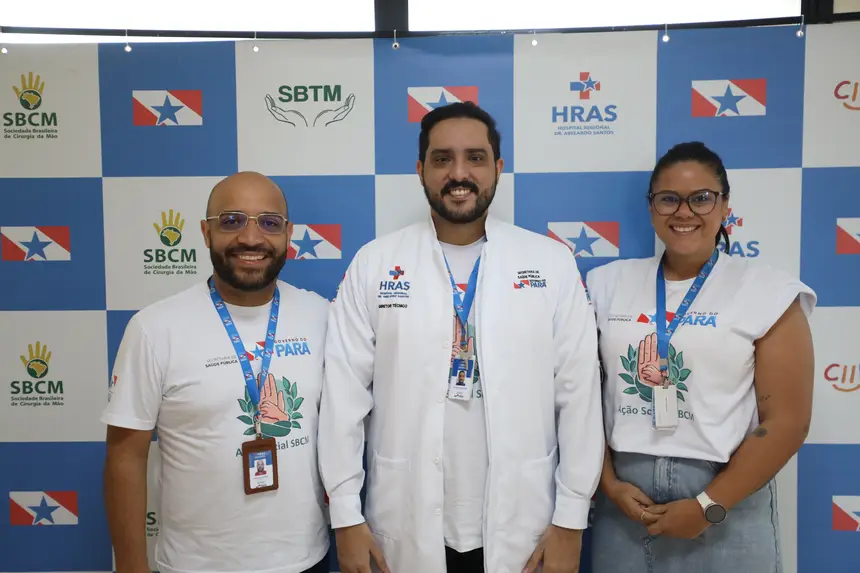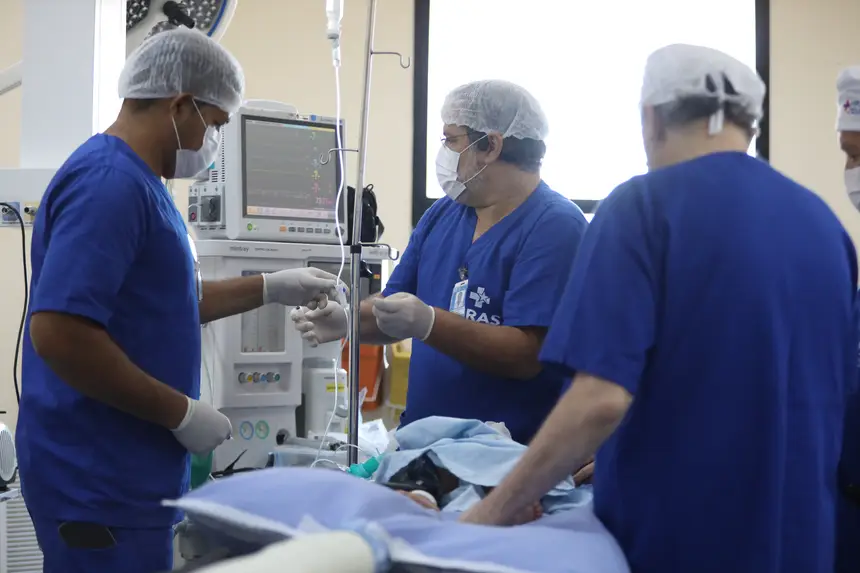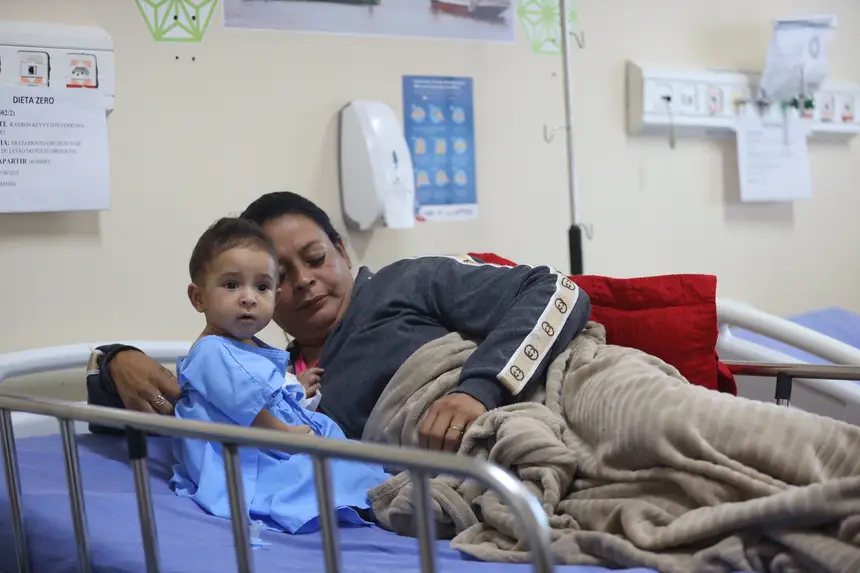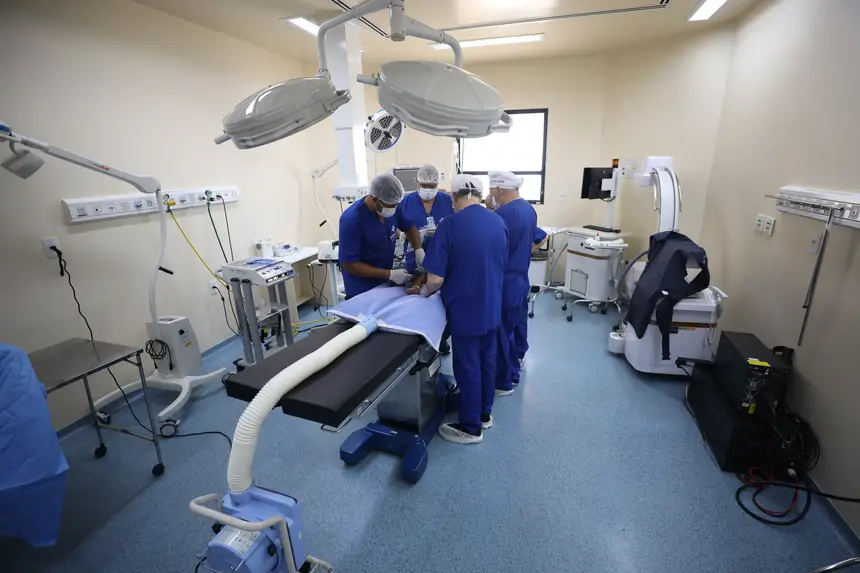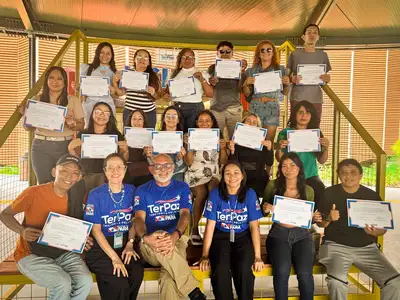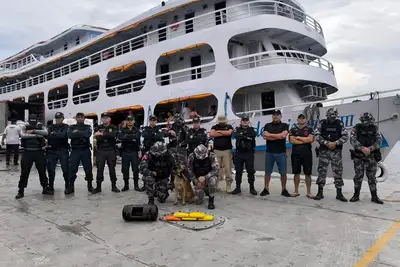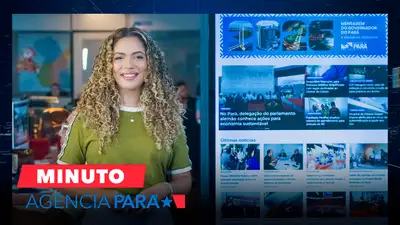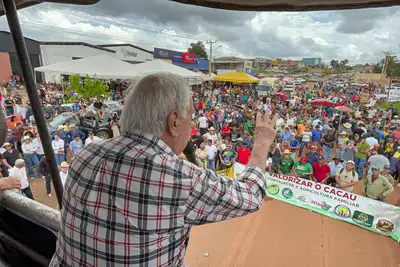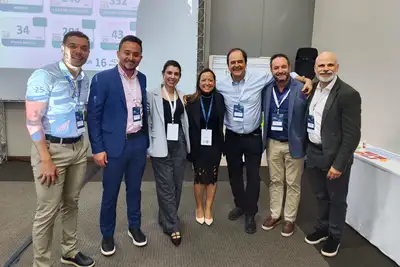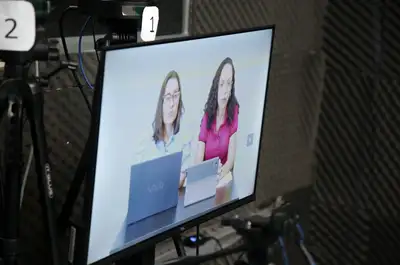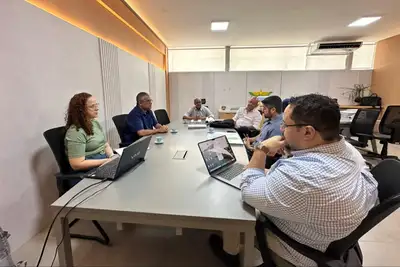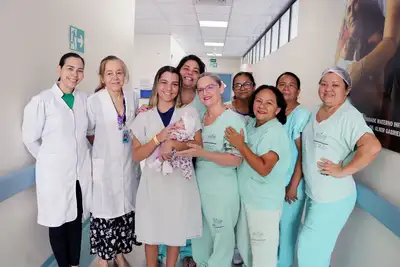Sespa supports a solidarity action for surgeries in children with hand deformities
Pará already has a specific and completely free program offered by the SUS, and the initiative reinforces the State's commitment to public health
On August 17 and 18, Belém will host a surgical campaign that represents a milestone for children's health in Pará. The initiative will benefit around 20 children with congenital hand deformities, coming from both the capital and municipalities in the interior. The action is organized by the Brazilian Society of Hand Surgery (SBCM), in partnership with the State Department of Public Health (Sespa), the Dr. Abelardo Santos Regional Hospital (HRAS), and the Integrated Center for Inclusion and Rehabilitation (CIIR).
Humanized reception
Before the surgeries, on Saturday (16), the children and their families were welcomed at the CIIR in an environment designed to generate trust and security. Playful activities, a space for photographic records, and the presentation of the professional team provided a differentiated reception, essential to reduce anxiety and strengthen the bond between patients and professionals.
In addition, the children underwent multiprofessional evaluations at the unit itself, ensuring that all procedures were carried out safely and excellently.
Quality of life and inclusion
The surgeries are taking place in the surgical block of HRAS, with the participation of a task force made up of three international specialists, seven surgeons from other Brazilian states, four doctors from Pará, and three residents. According to Pará surgeon Rui Barros, the technical responsible for the action, this is already the third edition, and the difference compared to previous ones is the level of complexity.
“In previous actions, we performed surgeries of low and medium complexity; this time, the cases are of high complexity, and the surgeries have been carefully planned. And the postoperative follow-up will also be essential to ensure the success of the treatment,” highlighted Barros.
The campaign focuses on correcting severe deformities caused by cerebral palsy, which affected one or both hands, compromising the functionality and well-being of the young patients.
For the surgeon, the campaign goes far beyond the surgical procedure — it is a social transformation action.
“The goal is to offer health, functionality, and dignity to these children. Many of the patients could not write, type, or perform simple daily tasks. Hand rehabilitation, in addition to restoring motor functions, contributes to self-esteem, reduces psychological impact, and opens doors for school and professional inclusion in the future,” explained the surgeon.
Barros also highlights the aesthetic importance of the interventions, especially in a context of facing bullying and prejudice that these children suffer due to visible deformities in their hands.
“Gesturing, expressing oneself, feeling accepted — all of this is fundamental for the formation of a child's identity. The surgery returns much more than movement: it returns life possibilities,” he concluded.
Families' expectations
Danielle Quaresma, mother of little Maria Júlia, 2 years old, discovered her daughter's hand deformity at birth. This will be the child's second surgery, now on the right hand — the first, performed in December 2024, was on the left hand. “My expectation is that my daughter's surgery will be a success, even though it is a more delicate procedure. My greatest wish is that she can grow up with quality of life and have as normal a childhood as possible,” said Danielle.
Arlinda Santana, mother of Arielle Oliveira, 1 year and 5 months old, who was born with a deformity in her right hand, admits to being anxious but confident in the outcome. They are from the municipality of Tucumã, located in southeastern Pará. “I am apprehensive because I know it is a very delicate surgery. Today, my daughter can only hold objects with her left hand. Participating in this action, which seeks to ensure a better future for her, warms my heart. Since my daughter was born and we discovered this condition, many doubts have arisen, especially whether she could one day have a normal life. But, thanks to the Government of Pará and the support of so many competent professionals, I am sure that from now on, she will have a quality life,” she stated.
Maria José Mineira Santana, mother of Myla Vitória Santana, had high expectations regarding the procedure. “It was nine months of waiting for the surgery, but now it’s over, as my daughter will finally be operated on. I am sure that everything will go well and that all my effort has been rewarded, as now she will be able to have a normal life without limitations. Congratulations to everyone involved in this action, and may more people also benefit,” she praised.
Social impact and pioneering in Pará
The State Secretary of Public Health, Ivete Vaz, emphasized the importance of the action for public health and the positive impact on the lives of the children served.
“This initiative has brought hope and quality of life to each patient and their families. We already have the Childhood Orthopedic Diseases Program, maintained by the Government of Pará, which has changed the reality of several children with congenital alterations in their hands and feet, but coming from renowned specialists from Brazil and abroad further strengthens the work of our Pará professionals, who are already highly qualified,” said the manager.
Pará is the only Brazilian state to maintain a specific program for this type of treatment, completely free through the Unified Health System (SUS). The State provides treatment after the patient is referred by the State Regulation System. An evaluation is conducted at the Integrated Center for Inclusion and Rehabilitation (CIIR), and if surgical indication is present, the case is directed to the Abelardo Santos Hospital.
The technical director of HRAS and physician, Marcel Ramalho, highlighted the fundamental role of the hospital in the program aimed at children, as it brings together adequate structure, specialized team, and experience in treating congenital deformities. According to him, the surgeries go beyond physical correction, as they restore autonomy, self-esteem, and new future perspectives for the patients. “It is an opportunity to transform lives, ensuring social inclusion and better quality of life for our children and their families,” he stated.
The Abelardo Santos Hospital, in Icoaraci, a district of Belém, is a reference in the treatment of congenital clubfoot and congenital hand deformities in children. Only in 2024, the unit performed 911 surgeries of this type, with 843 aimed at pediatric orthopedics and 68 for the correction of hand deformities. In the first half of 2025, 647 procedures have already been performed. The service is part of the Childhood Orthopedic Diseases Program, created in September 2020 by the Government of Pará, through the State Department of Public Health (Sespa).
Text: Suellen Santos / Ascom Sespa with information from Diego Monteiro /Ascom HRAS


